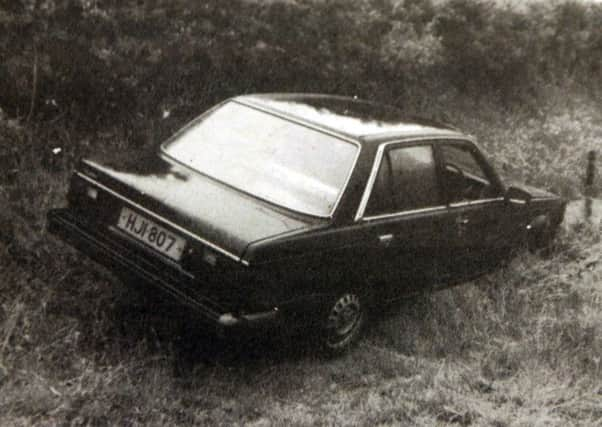BBC defends ban on Loughinisland murder documentary


Having initially commissioned the No Stone Unturned documentary, BBC bosses later decided that the project – which has been criticised in some quarters as giving a one-sided account of the police investigation – was “not consistent with the requirements” of its editorial guidelines.
The Fine Point Films’s production was largely based on stolen or unlawfully leaked report from the police ombudsman’s office.
Advertisement
Hide AdAdvertisement
Hide AdJournalists Trevor Birney and Barry McCaffrey were arrested by police investigating the security breach but the case was dramatically dropped when a court deemed the search warrants ‘inappropriate”.
Following the judge’s criticism, last week Sinn Fein MP Chris Hazzard called on the BBC to reverse its decision not to show the documentary.
“I have now written to the BBC asking them to screen ‘No Stone Unturned’ to mark the 25th anniversary and have also requested a meeting to discuss the issue,” he said.
A BBC spokeswoman said that they “no longer have any involvement with this film,” and added: “We are unable to comment on the important legal and editorial considerations which prevented our continuing involvement with this film project.”
Advertisement
Hide AdAdvertisement
Hide AdThe BBC spokeswoman said: “BBC commissioning and broadcasting decisions are based on our editorial guidelines. Our news and other outputs continue to cover the events and legacies of what happened at Loughinisland in 1994.”
She went on to say: “We made every effort to see if these [legal and editorial considerations] could be resolved in ways consistent with the requirements of our editorial guidelines.”
The film’s director and co-producer Alex Gibney told the News Letter he was prepared to change the UK version of the film’s contents, but wanted the worldwide version to remain untouched.
This has proved unacceptable to the BBC, but Mr Gibney played down the BBC’s suggestion that his film could be a possible breach of the corporation’s editorial guidelines.
Advertisement
Hide AdAdvertisement
Hide Ad“With respect, the BBC statement doesn’t say that. It makes a general reference to the fact that it has editorial guidelines,” he said.
“My ultimate disagreement with the BBC revolved around a business dispute. The BBC wanted me to make some changes for the UK audience.
“While I disagreed with the suggested changes, I was willing to make them for the UK. I was unwilling to make them for the worldwide version of the film.”
Speaking to The Sunday Times in 2018, the Oscar-winning film-maker said: “BBC wanted editorial control of all versions of the film, even though it only financed a small fraction of the film.
Advertisement
Hide AdAdvertisement
Hide Ad“I had final cut on all non-UK versions of the film and raised the money on that basis. When I refused to give up my right of final cut in all non-UK territories, the BBC withdrew its financing.”
Six Catholic men were gunned down by the UVF while they watched a Republic of Ireland World Cup match at the Heights Bar in the Co Down village. No one has ever been charged or convicted of involvement in the mass murder.
A Police Ombudsman NI (PONI) report published in 2016 claimed RUC officers had “colluded” with the terrorists responsible, however, two retired police officers have launched a legal challenge hoping to have the report quashed – claiming (among other things) that PONI should only make such assertions if there is evidence that any individual officer committed a criminal offence or breached police conduct regulations.
No such recommendations were made despite two separate PONI probes focused on the RUC’s handling of the murder investigation.
Advertisement
Hide AdAdvertisement
Hide AdCommenting on the case against the two journalists, Alex Gibney described the halting of the investigation as a “great victory”.
“I thought the original arrest was terribly unjust and clearly meant as a display to discourage future journalism on the Troubles. For the warrant to be quashed was a great thing. It was a great victory and a very important one at this moment in time throughout the world.”
He added: “There cannot be good journalism about the misconduct of governments if, when government secrets are leaked, it becomes effectively a crime at least for the reporters, then no governments can ever be held to account.”